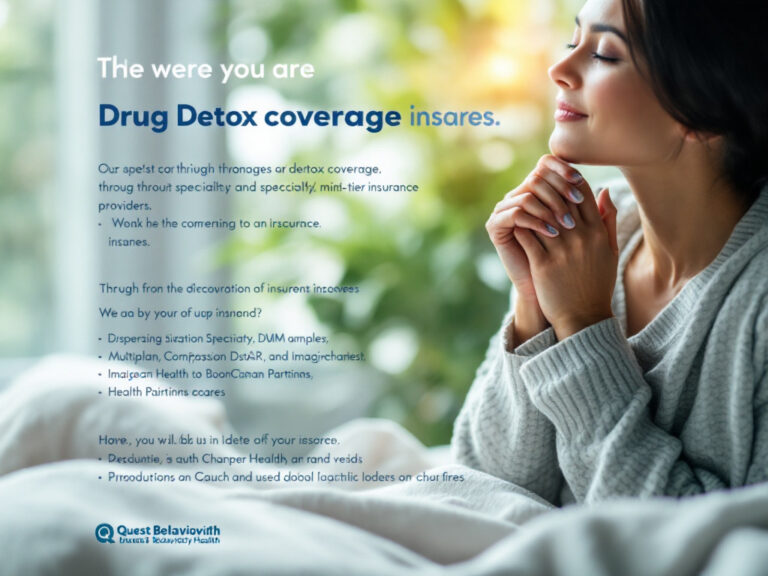Explore the aftercare support program
When you complete a drug or alcohol treatment intensive, you enter a new phase of recovery that can feel both exhilarating and uncertain. You have already put in the time and effort to detox and address core issues related to substance use. Now, you may wonder how you can stay motivated and avoid falling back into old patterns. That is where an aftercare support program becomes indispensable. This continuing level of care can offer guidance, structure, and the support necessary for lasting recovery, so you can keep building on all the progress you have made.
Research consistently indicates that addiction is a chronic condition, one often marked by highs and lows as you navigate daily life without relying on substances. In fact, between 40% and 60% of people recovering from drugs or alcohol experience relapse at some stage [1]. Although this statistic may feel intimidating, it highlights the importance of a viable plan for ongoing support. An aftercare support program offers that roadmap, bridging the gap between intensive care and independent, substance-free living.
During the primary phases of treatment, you may have received personalized therapy, medical detox services, and a thorough introduction to healthier coping strategies. However, transitioning away from a protected setting into your day-to-day routine can present unexpected temptations and triggers. A robust aftercare plan helps you face these moments with more confidence and preparation. You steadily gain the benefit of follow-up sessions, peer support, structured community involvement, and guidance from professionals who truly understand the complexities of addiction.
Because everyone’s recovery journey is shaped by personal experiences, tailoring this phase of treatment to your individual needs is vital. Some people may benefit from extended one-on-one therapy to address lingering mental health concerns, whereas others thrive in group settings that foster camaraderie. Others may need practical solutions like sober living guidance or housing referrals. Whatever the approach, the heart of an aftercare support program is to ensure you have direct access to tools, resources, and supportive relationships aimed at keeping you on your path to healing.
Recognize the benefits for ongoing recovery
Just as addiction rarely occurs in a vacuum, neither does recovery. Real-life responsibilities, social dynamics, and internal struggles can all influence how successful you are in maintaining sobriety. By participating in an aftercare support program, you tap into a network of individuals and professionals with a shared focus: maximizing every opportunity for long-term wellness. Here are a few ways aftercare can enhance your journey:
-
Relapse prevention strategies: One of the biggest challenges in recovery is avoiding relapse. Because relapse is relatively common in the months following initial treatment, aftercare programs often emphasize techniques for identifying high-risk scenarios, developing coping mechanisms, and reinforcing healthier behavior patterns. Studies show that continued care interventions significantly improve outcomes [2].
-
Ongoing emotional support: Remaining sober can include dealing with a range of emotions you used to numb through substance use. An active aftercare program can help you manage stress, anxiety, or depression by offering group therapy, personal counseling, or skill-based sessions that teach healthy ways of processing complex feelings. As you continue to work on emotional stability, you build resilience for future challenges.
-
Peer and group engagement: Recovery is more attainable when you feel connected to others who understand the path you are on. Peer support groups, including 12-Step programs like Alcoholics Anonymous or Narcotics Anonymous, often function as central pillars within aftercare support. These groups give you a safe setting to share triumphs and setbacks, learn from others’ experiences, and practice accountability.
-
Focus on life skills: Successful rehabilitation involves healing emotional wounds and improving practical capabilities. For this reason, many aftercare support programs include job training, financial literacy classes, or guidance in educational pursuits [3]. Strengthening these life skills fosters independence and broadens your sense of purpose.
-
Family and community integration: Long-term success often relies on how well you mend or reinforce relationships with loved ones. Some aftercare models incorporate optional family therapy, helping relatives learn about addiction while working toward healthier communication and boundaries. By engaging your family in the recovery process, you create a more stable environment where each person understands the importance of supportive involvement.
Although aftercare may look different from person to person, the universal goal is to mimic the empowerment and structure of primary treatment while you settle into daily life. It is a proactive choice to focus on your recovery at a deeper level, ensuring you have resources in place when inevitable challenges arise.
Discover the essential aftercare components
Because there are so many facets of substance abuse and its effects, aftercare strategies often incorporate multiple services built specifically to meet your circumstances. Here are some of the most common components you might find in an aftercare support program:
Individual and group counseling
Therapy remains useful long after you have stopped actively using substances. In one-on-one discussions, you can delve deeper into unresolved issues, stressors, or relationship conflicts. Group counseling brings another layer of accountability and a sense of unity that helps men, women, and individuals from every background connect around common goals. Some programs focus on cognitive behavioral therapy, which addresses harmful thought patterns leading to destructive behaviors. Others might prioritize mindfulness-based exercises that teach you self-reflection and grounding techniques.
Peer-led support networks
Peer support groups, including 12-Step models (like AA or NA) and non-12-Step alternatives (like SMART Recovery), allow members to learn from each other and forge sober friendships [1]. Sharing personal stories, strategies for coping, and successes fosters mutual support critical for sustained wellbeing. These groups often meet weekly or even multiple times a week, providing continuous reinforcement for the skills learned in treatment.
Sober living and transitional housing
Returning to the same environment that facilitated your substance use can be daunting. Sober living homes present a structured and substance-free setting designed to make that transition safer and less isolating. Many homes require residents to adhere to curfews, attend regular meetings, and provide financial contributions to communal expenses. These guidelines cultivate a sense of shared responsibility and expose you to routine, camaraderie, and accountability [1].
If you are looking for a way to integrate a structured housing arrangement, you may benefit from a transitional housing referral before returning fully to independent living. Such a referral ensures that you have the opportunity to practice new life skills and keep developing positive habits within a peer-supported environment.
Relapse prevention planning
The first few months of recovery can be especially challenging. A relapse prevention plan lays out specific methods for handling triggers, scheduling follow-up appointments, and ensuring you have trustworthy professionals to contact when you start feeling vulnerable. Continual self-observation, daily journaling, and check-ins with licensed counselors can keep you on track. Because co-occurring disorders like depression and anxiety can also contribute to setbacks, you might continue medication management or therapy as part of a relapse prevention protocol.
Whenever you feel a risk of returning to old habits, you want immediate solutions in place. Consider looking into our relapse prevention planning resources, which can refine your strategies so they remain accurate and relevant to your evolving life circumstances.
Comprehensive case management
Addiction rarely exists in isolation, which is why some aftercare programs include case management services. This approach can streamline your experience by connecting you to medical professionals, mental health experts, or community support resources. If you need specialized therapy, transitional housing, or advanced services, a case manager helps you navigate each step. Over time, their assistance ensures every piece of your recovery plan continues to work together cohesively.
Ongoing medical and mental health support
Your physical health plays a key role in how confident and capable you feel in everyday life. Keeping up with medical appointments, continuing medication, and monitoring any underlying health conditions prevents added strain. For those with a co-occurring diagnosis such as post-traumatic stress disorder or bipolar disorder, therapy and medication adjustments are vital. Mindful attention to overall wellness makes your sobriety foundation stronger and more adaptable.
Community outreach and fitness therapy
Beyond counseling and family-based services, some programs offer fitness or creative therapies that blend movement, social engagement, and personal development. For instance, you might find a boxing fitness recovery program that relieves stress while building self-confidence. Or, you could enroll in on site fitness therapy rehab to improve your physical health and mental well-being. When integrated thoughtfully, these holistic activities contribute to a stable body and mind throughout recovery.
Keeping all these elements in mind, a successful aftercare support program meets you where you are and adapts as you progress. If you thrive in an environment with repeated check-ins, you may also explore weekly recovery support meetings intended to keep you involved and connected. Conversely, if you prefer more independent progress, you might prioritize telehealth consultations or periodic group therapy sessions that fit your schedule.
Advance your journey at Kemah Palms
Choosing a facility that prioritizes both immediate treatment and your overall trajectory can make all the difference. At Kemah Palms, our mission extends far beyond your initial healing process. We understand that meaningful change stretches well into the months and years following detox. As an industry-leading provider of drug and alcohol addiction treatment, we incorporate a robust aftercare support program that aligns with your unique challenges and fosters a supportive environment where you can continue to flourish.
Our approach to personalized care
From the moment you step into Kemah Palms, we emphasize comprehensive care that addresses the root causes of addiction. You receive individualized plans to support your healing process, and we incorporate evidence-based methods proven to reduce relapse rates and empower resilience. While our immediate focus may involve detoxification and primary therapies, we always look ahead to life after your initial treatment phase. Planning for your long-term success begins early, setting you up for improved outcomes.
Developing your aftercare plan
Before you complete our primary programs, we collaborate with you to design a plan customized to your personal needs and lifestyle. This plan might include any of the aftercare essentials—continuing therapy, peer support, family counseling, or skill-building activities. We may also discuss sober living options, transitional housing, or specialized fitness programs and nutrition education. Our goal is to equip you with a dynamic set of tools so each step you take is purposeful and grounded in practical resources.
If you feel unsure about how to cover ongoing treatment, we can help you navigate various insurance policies, including private insurance rehab coverage or verify bcbs rehab coverage. These resources can lessen any financial barriers to consistent care.
Connection to peer networks
Facing addiction can be isolating, so having a community to call upon is essential. Through dedicated peer support meetings, group therapy, and mentorship connections, Kemah Palms strives to keep you engaged in a positive recovery atmosphere. Our approach focuses on camaraderie and mutual understanding, pointing out that you are never alone in combating triggers or temptations.
Our continuing commitment involves not only your mental health but also your physical wellness, which is an integral part of your overall recovery journey. If you need an extra layer of safety and stability, we can guide you toward a sober living referral so you can keep refining your coping skills in a structured, supportive space.
Insurance coverage and accessibility
We believe in making aftercare resources as accessible as possible. That is why Kemah Palms accepts many insurance providers, including, but not limited to, Aetna, Magellan, Blue Cross Blue Shield, and TriWest. If you have questions about your plan, you may verify tri west rehab coverage ahead of time. We aim to remove any obstacles that could discourage you from receiving the full continuum of care. Furthermore, if you face limited mobility or cannot easily attend in-person sessions, you can schedule a telehealth rehab consultation to stay connected with your care team remotely.
Emphasis on lasting transformation
Addiction fundamentally affects how you live, relate to others, and perceive yourself. True transformation requires consistent follow-up and dedication to reintroducing healthier behaviors. Our approach at Kemah Palms recognizes that success in treatment goes beyond days of sobriety. We also look for improvements in your emotional stability, relationships, and daily functioning [4]. By providing a solid aftercare foundation, we encourage you to keep moving forward with optimism, well-being, and the belief that, with the right support, a fulfilling life in recovery is within reach.
Address frequent questions on aftercare
Below are some of the most common questions regarding an aftercare support program, along with answers that can help guide you or a loved one on this continued path toward healing and growth.
What is an aftercare support program?
An aftercare support program is a structured plan of ongoing care that begins once you have completed an intensive phase of treatment, such as inpatient or residential rehab. It typically includes further counseling, peer support group attendance, relapse prevention training, medication management, and other supportive services. The goal is to provide lasting guidance and accountability so you can maintain and strengthen your sobriety long after leaving a primary treatment setting. Through regular check-ins, skill-building sessions, and group engagement, you gain the support necessary to navigate life’s ups and downs without returning to substance use.
When should I start aftercare?
You generally start aftercare as soon as you transition out of a higher level of care, like inpatient rehab or an intensive outpatient program. Early engagement is vital because relapse risks often peak in the initial months after leaving primary treatment [1]. If you or a loved one is considering a safe and seamless way to shift from a highly structured routine to more independence, beginning an aftercare support program as soon as possible can lock in the healthy habits you established in treatment.
What if I relapse even with aftercare?
Relapse does not mean you have failed; it simply indicates that your treatment plan might need adjusting. Addiction is a chronic condition, so you may require further support or a modified approach. Aftercare programs offer continuous monitoring, so if you do slip, your team can step in quickly to adjust your plan. This might mean more frequent therapy sessions, medication management changes, a renewed focus on coping strategies, or exploring additional help such as case management addiction. The purpose of aftercare is not to guarantee zero setbacks, but to catch relapses early and get you back on the road to stability.
How long should I stay in aftercare?
The duration of aftercare depends on your personal circumstances, progress, and clinical recommendations. Many programs suggest at least one year of ongoing support, although some individuals discover they benefit from multiple years of structured follow-up [1]. Others may taper off earlier if they are showing strong signs of self-reliance and consistent abstinence. The key is to stay until you feel confident in your coping skills, your support network, and your ability to remain sober. Ultimately, how long you remain in aftercare should be flexible, reflecting your unique journey in recovery.
Is aftercare covered by insurance?
Insurance coverage for aftercare will differ based on your plan. Fortunately, many policies do include provisions for continued outpatient services, counseling, and alternative therapies. You can verify humana rehab coverage or check with other insurance providers to clarify your benefits. If your insurance does not fully cover aftercare, consider options like sliding-scale fees or specialized grants that some treatment centers offer. Since aftercare can be integral to preventing relapse and maintaining the progress you have already worked so hard to achieve, it is worth exploring all possible insurance options to find a plan that fits your budget and needs.
By committing to an aftercare support program, you give yourself a vital advantage in sustaining the gains earned through your initial treatment phase. At Kemah Palms, our focus on personalized, empathetic, and informed care ensures that you experience a consistent source of encouragement for as long as you need it. No matter where you are in your journey, your recovery deserves the best possible support. We invite you to explore our services and learn how practical, well-structured aftercare can help you maintain sobriety, improve your confidence, and move forward toward a brighter, substance-free future.







